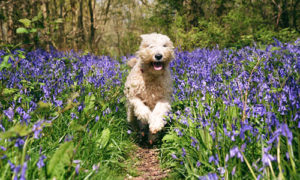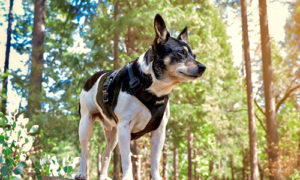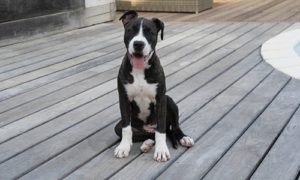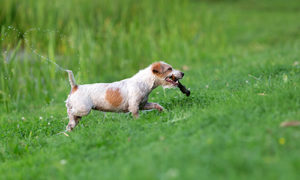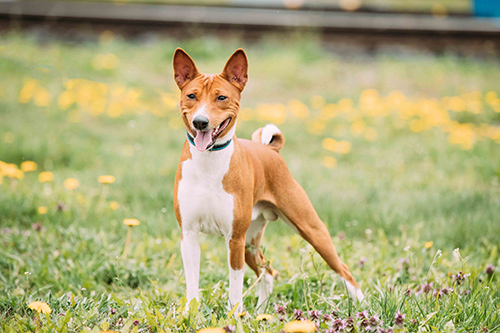
Basenji dogs are a breed that originated as hunters in Central Africa, and their ancestors can be traced back to ancient Egypt. Basenji dogs are still used in Zaire and Sudan. It was imported to England in 1937 and was first seen in North America a year later. The first litter born in North America was produced from imports from Africa in 1941.
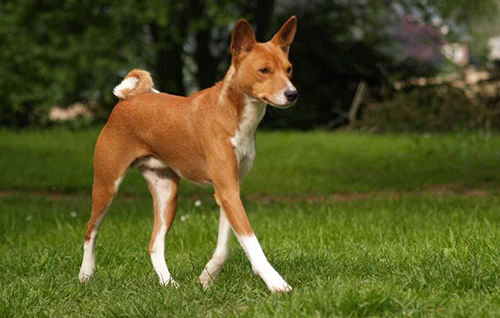
Breed Standard
The Basenji dog is a small, light-boned, short-backed, somewhat leggy hunter with a glossy, smooth coat and a tightly curled tail. The dog’s wrinkled brow gives it a worried, quizzical expression. Its ears are small, erect, and set well forward on the top of the flat, well-chiseled skull. The almond-shaped, obliquely set eyes range from dark hazel to dark brown. The Basenji is recognized as the “Barkless Dog,” however, it has a range of sounds, including growls, yodels, crows, howls, and occasional “fox barks,” about one or two.
Breed Facts
| Energy level | Watchdog ability | ||
| Exercise requirements | Protection ability | ||
| Playfulness | Grooming requirements | ||
| Affection level | Cold tolerance | ||
| Friendliness toward dogs | Heat tolerance | ||
| Friendliness toward other pets | Friendliness toward strangers | ||
| Ease of training |
- Popularity: Somewhat uncommon
- Family group: Sighthound, Primitive
- Country of Origin: Central Africa (Zaire and the Congo)
- Date developed: Ancient times
- Original purpose: Hunting small game
- Current function: Lure coursing
- Other names: Congo dog, Congo Terrier
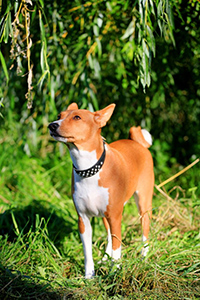
Activity level: These dogs need regular exercise within a safe, fenced-in area. Though small, the dog is a speedy runner when they take off after prey. The breeds problem-solving skills make them talented and capable escape artists. Its exercise needs can be met with long walks followed by high-spirited games or free-running in a safe enclosed environment.
Grooming: A weekly brushing is needed to control shedding. The dogs are noted for their clean and meticulous habits.
Coat: Smooth, glossy, and flat.
Color: Black, tricolor, chestnut red, and brindle. All colors may have white markings on the feet, chest, tail tip, white legs, and a white blaze and collar.
Group: Hound
Year of recognition by the AKC: 1944
Basenji Dog Temperament
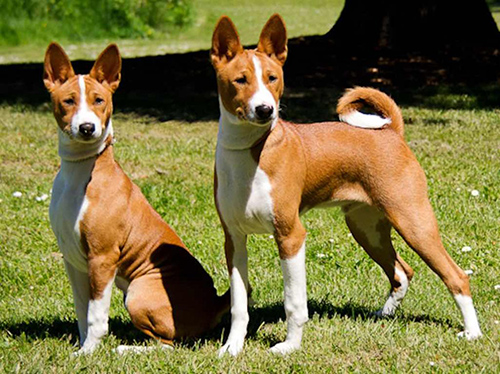
The dog is an independent hunter with quick reflexes, a strong hunting drive, and sharp senses. This breed requires regular physical and mental activity with ongoing socialization training. It can be aloof with strangers. They are resourceful problem solvers and can get in trouble if left alone.
Some people consider the Basenji dog to possess terrier-like traits because it is too contentious for a hound. However, it is mainly regarded as cat-like because of its cleverness, independence, curiosity, stubbornness, and reservedness. The hunting roots are evident, and the dogs love to trail and chase. It will become frustrated and destructive if not adequately exercised. The dogs may be barkless, though they are not mute. It gets along reasonably well with other dogs but not with other Basenjis.
Health
- Main concerns: Fanconi syndrome, PRA, Basenji enteropathy
- Minor problems: PPM, PK, hypothyroidism, umbilical hernia
- Rarely seen: CHD, patellar luxation, corneal dystrophy
- Recommended tests: eye, thyroid, hip, Fanconi, DNA for PK, DNA for PRA
- Life span: 12 to 14 years
- Weight: male – 24 pounds; female – 22 pounds
- Height: male – 17 inches; female – 16 inches
Breeder and Buyer’s Advice

Basenji dog puppies are available only in the spring because the breed has only one annual reproductive cycle. You can find information about these dogs for sale on the parent club’s website. There you will find a list of approved and reputable breeders in your area. The price of puppies may vary and is contingent on the breeder and the dog’s pedigree. You might find a Basenji in a rescue center or the pound if you are lucky. Although highly unlikely, a Basenji mix might fall into your lap.
Parent club: Basenji Club of America (https://www.basenji.org/); founded in 1942
Regional clubs: Information can be located on the parent club’s website about affiliated clubs.
Rescue: A list of rescue volunteers can be found on the parent club’s website.

